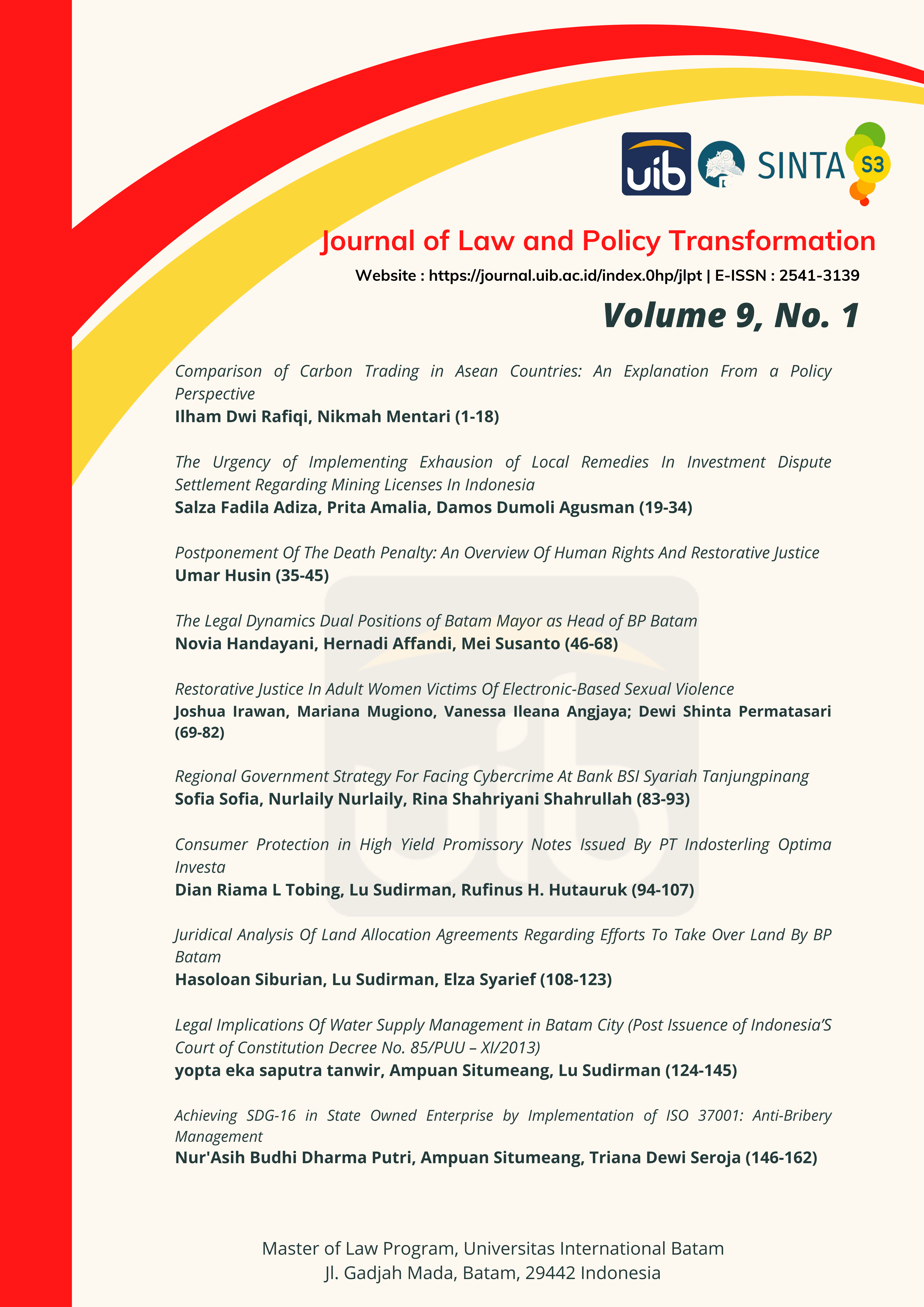Comparison of Carbon Trading in Asean Countries: An Explanation From a Policy Perspective
DOI:
https://doi.org/10.37253/jlpt.v9i1.9044Keywords:
Policy Comparison, Carbon Trading, ASEANAbstract
Along with the threat of the climate crisis, countries in the world are starting to make efforts to mitigate and adapt to climate change. This commitment is outlined in the Earth Summit, Kyoto Protocol and even the Paris Agreement. One form of effort is to carry out carbon trading as an economic instrument in controlling climate change. In the course of its implementation, carbon trading can actually give rise to problems of conflict, evictions, violations of human rights, and even an increase in carbon emissions, especially for developing countries as carbon providers/carbon offsets. Thus, an assessment needs to be carried out to find out the source of the problem. This article aims to examine carbon trading policies in ASEAN countries in an effort to find comparisons as well as existing shortcomings or problems. The method used is normative legal research with a statutory approach and a comparative approach to examine differences in policies from each country. It is hoped that this article can provide a contribution in the form of an analytical picture and information that can help the government to continue to make improvements through economic instruments to control climate change.
Downloads
Downloads
Published
Issue
Section
License
Copyright (c) 2024 Journal of Law and Policy Transformation

This work is licensed under a Creative Commons Attribution-NonCommercial-ShareAlike 4.0 International License.
Program Magister Hukum Universitas Internasional Batam









1.jpg)

1.png)




1.png)
2.png)
.png)
2.jpg)


